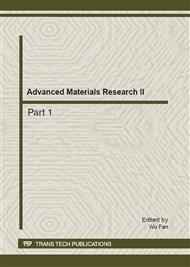p.1242
p.1246
p.1252
p.1256
p.1260
p.1264
p.1268
p.1272
p.1277
Mathematical Modeling of Management Decision Activities with Maximum Risk in the Intelligent Robotic Systems
Abstract:
The aim of shaping management empathy is to know future specialists performance and their improvement in human-computer-machine dialogue. Therefore, we’ve defined the concept of management empathy and we’ve built fuzzy models that allowed the quantification of the empathic level manager-executed in the idea of increasing human elements of the correlation educator-teacher. Management decisions in the final forms benefit both from the archemic-systemic design and the mathematical models able to quantify intelligent robotic systems to its highest performance. This goal requires minimum effort and efficiency as high as possible in the processes and robotic systems. The final optimal solution fully reflects the innovative archemic-system design if and only if the information entropy of intelligent robotic systems is minimal under full compliance with environmental restrictions.
Info:
Periodical:
Pages:
1260-1263
Citation:
Online since:
February 2012
Keywords:
Price:
Сopyright:
© 2012 Trans Tech Publications Ltd. All Rights Reserved
Share:
Citation:


